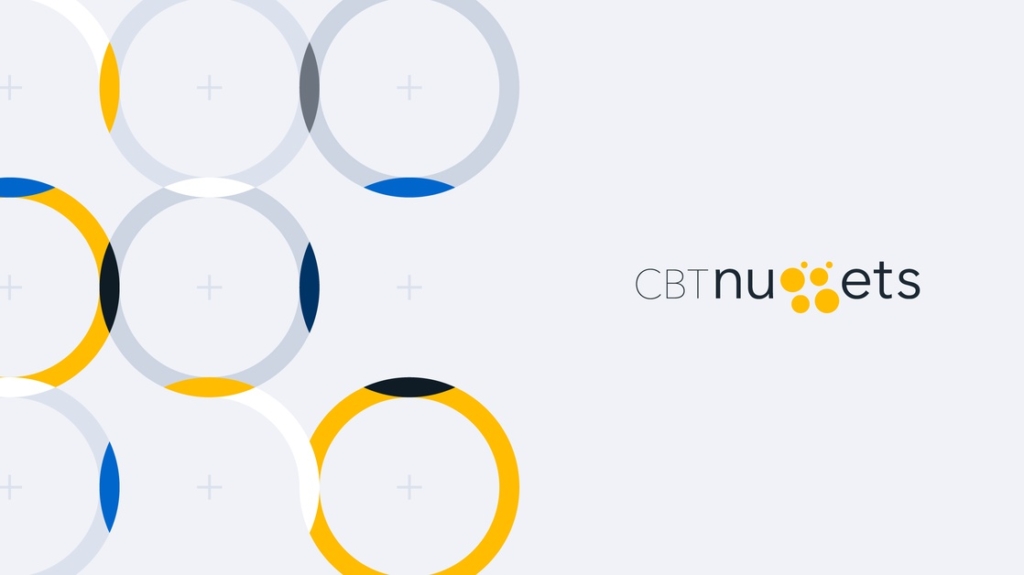New Course: Scrum Essentials

CBT Nuggets trainer Simona Millham recently released her Scrum Essentials course, introducing you to agile development and the Scrum framework, and equipping you with a solid foundation for Scrum certification. Simona covers the values, practices, and applications of the Scrum framework, as well as team roles, activities, and artifacts giving you the ability to decrease internal and external distractions, all while increasing project success.
In this 11-video course, Simona creates a strong Scrum foundation on which you can build successful, agile projects. Simona addresses topics such as Agile software development, the product owner role, the ScrumMaster role, sprint planning and execution, and more.
We asked Simona about her course, and how the Scrum framework impacts the IT workplace.
Q: Why should companies train their teams on agile development and the Scrum framework? Why are Scrum skills valuable to IT pros? If companies want to "go Agile," then it's really important that everybody knows what that means and embraces the values. I think IT pros working in an agile environment will find it much easier to understand why it works the way it does if they follow the training.Q: Who should pursue Scrum training and/or certification? Anyone, actually from Developers, to Project Managers, to people on the business side of the organization. You don't need to be technical to play a role in Scrum, so if your organization is going Agile, or you want to be marketable to organizations that already are, then get certified!
Q: Any out-of-the-box tips for learners to help them get the most out of your course? I would suggest working through the Nuggets in order from beginning to end because they take you on the journey of Scrum.Q: What was your favorite Nugget to create in this course? Introducing Scrum! It was very satisfying to get the whole of Scrum on a single whiteboard!Q: What's the most important thing you hope learners take away from this course? That Scrum is a journey. It's hard to implement, but well worth the trouble, so persevere!Q: What course(s) or certification(s) should learners complete before diving into your Scrum Essentials course? Because this is an introductory course, there really aren't any courses or certifications you need before starting with Scrum Essentials.Q: What course(s) or certification(s) should learners look to jump into after they complete your Scrum Essentials course? If you're an aspiring Scrum Master, then look out for my Soft Skills course! *Editor's note: Simona is currently developing a Soft Skills for Scrum Masters course. It will be available at CBT Nuggets soon!Q: In their career timelines, when should learners tackle Scrum in relation to their other IT certifications? For example, for a networking IT pro, the typical certification pathway might include the CompTIA Network+, followed by the CCNA Routing and Switching and CCNP Routing and Switching, then on to further certs. Where does Scrum fit in? I think Scrum can fit in anywhere. There are no technical prerequisites. Maybe tackle it as a break from the technical stuff!Q: As a recently minted Scrum Master, what surprised you as you prepared for your own certification journey? What challenges did you face and how did you overcome those obstacles? I first came across Scrum a little while ago at a government department here in the UK where I was training on Office 365. When I got the opportunity to create this course I jumped at it so that I could really get to the heart of what Scrum was all about. And what surprised me most was how bare the Scrum framework actually really is just a framework. The Scrum that I had experienced at that customer site was their version of Scrum!While studying for the certification, at times it felt like it provoked more questions than it answered, but you quite quickly get to see that people develop and interpret Scrum in a way to suit their situation. That's not to say that you skip the bits you don't fancy, but having "done it by the book" first, you get to see what works for you and what doesn't!Q: Agile development and the Scrum framework are inherently iterative. But many IT pros appreciate or maybe even love the fact that they can finish things, tasks, or projects. How do IT pros reconcile the need to finish things with the ongoing iterative process of Scrum and agile development? In fact, Scrum plays very well to "finishers" you have an opportunity to finish a chunk of functionality at each iteration, a.k.a. sprint. In that way, it can keep the energy levels high for finishers because the end of the sprint is never far away!Q: A lot of people often think of Scrum as being "project management." In what ways can Scrum be considered project management? And in what ways is Scrum distinctly different from project management? I think it is fair to say that Scrum is kind of a type of project management it's just a framework for addressing complex projects in an ever-changing world. That's not to say that Scrum will suit every type of project though!
Take your first step toward conquering Scrum today with Simona's Scrum Essentials course!
delivered to your inbox.
By submitting this form you agree to receive marketing emails from CBT Nuggets and that you have read, understood and are able to consent to our privacy policy.